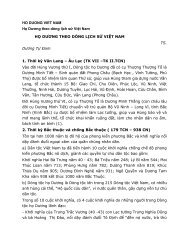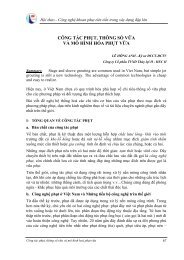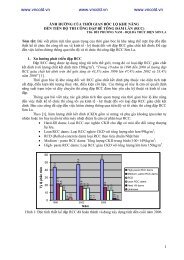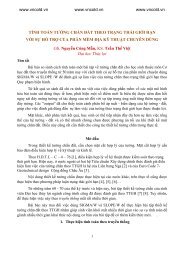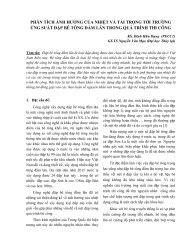Civil Engineering Project Management (4th Edition)
Create successful ePaper yourself
Turn your PDF publications into a flip-book with our unique Google optimized e-Paper software.
202 <strong>Civil</strong> <strong>Engineering</strong> <strong>Project</strong> <strong>Management</strong><br />
16.7 Payment for manufactured items shipped overseas<br />
When manufactured items have to be delivered to projects overseas, arrangements<br />
for staged payments will normally be provided for in the contract.<br />
Items will need to be inspected and tested at the place of manufacture, their<br />
loading to ships inspected, and inspected again when offloaded at the place of<br />
destination. If the civil engineering contractor is responsible for the supply of<br />
the items he must arrange for the loading and offloading inspections; if items<br />
are supplied under a separate contract the engineer will have to arrange the<br />
inspections. In either case, however, the engineer will need to ensure that such<br />
inspections are efficient, not only for the purposes of payment, but to ensure<br />
safe delivery because it may take weeks or months to replace an item lost or<br />
damaged.<br />
Manufacturers normally only quote supply of equipment ‘to dockside’ or<br />
‘f.o.b.’ (free on board), after which the carrier takes responsibility until he<br />
offloads. If equipment is not inspected at every stage, it may be impossible to<br />
know who is responsible for any damage or loss; leaving the employer to bear<br />
the cost of any replacement. The whole operation needs to be well organized<br />
if trouble is to be avoided.<br />
16.8 Price adjustment<br />
Some contracts contain a price variation clause in order to protect the contractor<br />
against the risk of rising prices due to inflation. Nowadays it is not<br />
usual for contracts in the UK lasting less than 2 years to contain such a clause.<br />
To calculate the amount due, the contractor either has to produce evidence of<br />
how prices have altered since he submitted his tender; or a formula which uses<br />
published indices of price changes is applied to the payments due to him<br />
under billed rates.<br />
For contracts in the UK the price indices published by the Department of the<br />
Environment, Transport and the Regions, formerly referred to as the Baxter<br />
indices and which are relevant to the civil engineering industry, can be used<br />
according to a formula. The formula applies the indices via various weightings<br />
given to labour, plant, and specific materials – in rough proportion to their use<br />
in the works being built. Standard types of formulae are included in the ICE<br />
and other forms of contract. At each interim payment the formula is applied<br />
using the latest published indices to give a multiplier representing the change<br />
in construction prices since the date of tender. This is applied to the value of the<br />
work done and certified for payment during the month. The cumulative total<br />
of these monthly additions represents the allowance for price inflation for<br />
work done to date.<br />
Most price variation clauses provide that the price adjustment ceases for<br />
those parts of the works for which a substantial completion certificate is issued,




